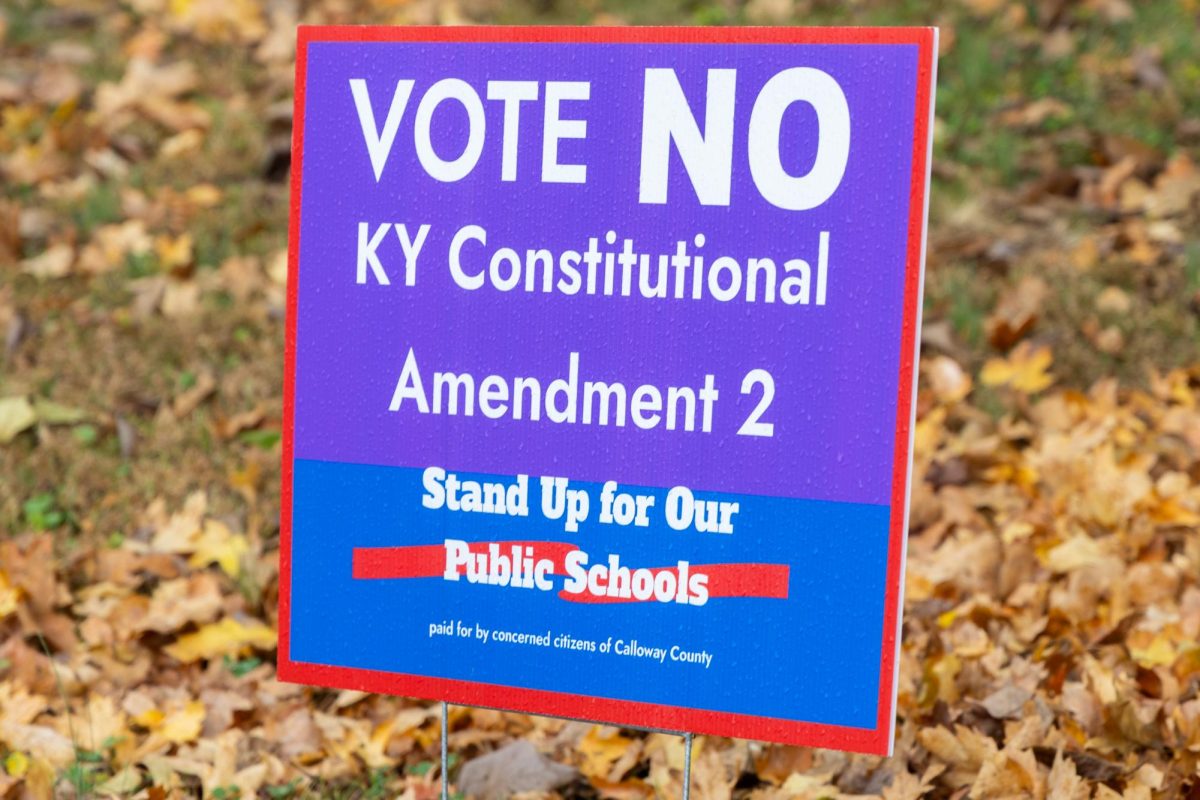Kentucky voters went to the polls this year and voted to pass an amendment requiring U.S. citizenship for those voting in Kentucky. Voters also decided against public funding for private educational institutions.
Amendment 1 to the constitution passed with 64% of the total vote, with over 10,000 Kentucky voters voting to ratify the amendment
The amendment concerned citizenship requirements for Kentucky voters. It will change the state constitution to include the line that “no person who is not a citizen of the United States shall be allowed to vote.”
Federal law already prohibits noncitizens from voting in federal elections, and the Kentucky constitution states that only citizens of the United States can vote in state elections. However, this amendment will add specific language to the constitution barring noncitizens from voting in local as well as state elections.
An anonymous student said he supported the amendment passing despite the redundancy. He said it would provide clearer language for the law.
“I’m in favor of more specificity with the law, just so it’s not spread just generally and used for purposes it shouldn’t be.” The student said. “I do support the fact that it passed.”
Caleb Wyatt, junior exercise science major, said he supported the amendments passing.
“I don’t guess it makes any logical sense to me why somebody who’s not a U.S. citizen would need to vote in a U.S. election. Like, I don’t go to France and vote for their president,” Wyatt said.
Amendment 2, which concerned funding for schools outside the public school system, failed to pass with 67% of voters voting against it.
If passed, the bill would have added language to the state constitution stating “the General Assembly may provide financial support for the education of students outside the system of common schools.”
This means the Kentucky General Assembly would have been able to direct public funding to private, charter and religious schools, though the amendment did not include any plans for the immediate funding of these institutions.
Anna Thorpe, freshman bio/pre-med major, said she didn’t support the amendment. Thorpe said as the daughter of a public school teacher, she believed the amendment would have done more harm than good.
“I think that public schools are already kind of not funded enough as is, and I think that taking funding away definitely wouldn’t be beneficial to anything,” Thorpe said. “My mom is a public school teacher, and I went to public school, and I’m around a bunch of teachers for public schools, and I just kind of know a little bit of the perspective on it. It’s just a good thing that it didn’t pass.”
The anonymous student also said he did not support amendment 2. The student said the amendment could negatively impact communities by further straining funding for public schools.
“For amendment 2, I voted no. I’m personally from a public school, they are already out of funding. I mean, it’s pretty limited,” the student said. “I’d say, if it’s spread even further thin, among things, private schools that might not have those regulations as well that public schools have, then it’s a negative impact on the community.”
Nathan Casitz, sophomore music education major, said he voted no on amendment 2 because he believed the passage would hurt not just public schools, but private schools as well.
“I voted no on it because I believe public money should go to public institutions. I believe that keeping the money out of private schools not only increases the amount that goes to public schools, but increases the quality of it.” Casitz said. “But I think that even for private school students it won’t help. I mean, we’ve seen throughout COVID-19 when prices change, they don’t go back down. I think even with extra funding toward private schools, they’re not going to reduce the prices. I think it’s just going to make it harder on everyone that doesn’t go to private schools.”




























































































